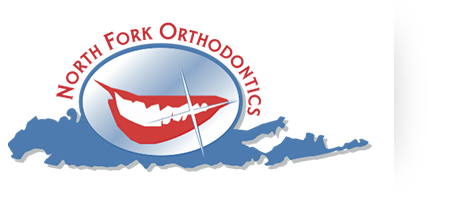Orthodontic FAQs
Orthodontic Treatment: Commonly Asked Questions
What does the word “orthodontics” really mean?
Orthodontics, which is also known as dentofacial orthopedics, is a specialty that helps people correct issues with their teeth as well as their facial structure.
What does it take to become an orthodontist?
To become an orthodontist, you need to spend an extra two to three years in school after dental school and practice for many hours on real patients. Some of the goals of orthodontic treatment are to fix a person’s jaw structure and make their smile work better.
When should you start going to an orthodontist?
If you want to improve how your smile looks and feels, you can see an orthodontist at any age. Around age 7, kids should see an orthodontist for the first time. But one in five people who get orthodontic treatment is over 21, so it’s not just for kids and teens. An orthodontist can see you or your child at any time.
How do I care for my teeth if I have braces or a retainer?
- When you eat, don’t forget to brush and floss your teeth.
- Ask your orthodontist if you should use a fluoride rinse, and use fluoride toothpaste. Make sure you floss and brush your teeth twice a day.
- Take your retainer out before you eat so you can clean your teeth and floss. Put it back in its case so you don’t lose it or break it.
- You can keep your retainer clean by flossing between your teeth and gently brushing it with toothpaste and a toothbrush. Or, your orthodontist might tell you to put it in a cleaning solution for dentures. Don’t wash your retainer in the dishwasher or using hot water.
- Plaque and cavities are caused by bacteria growing in your mouth, so avoiding sugary foods can help you avoid getting them.
- Don’t eat things like caramel, gum, or gummy bears that are hard or sticky. Also, don’t eat hard candies, nuts, ice cubes, or anything else that could get stuck in your braces (corn on the cob, soft bagels, ribs, taffy, etc.).
- Make an appointment to see your dentist regularly. As a general rule, you should see the dentist every six months.
What are braces?
Braces are devices used by an orthodontist to correct any misalignment with your teeth. Your teeth will be straightened as a result of wearing braces.
By wearing braces, your orthodontist will help you achieve a more attractive smile. Some types of braces are:
- Clear braces
- Ceramic braces
- Lingual braces
- Self-ligating braces
- Invisible braces
- Traditional metal braces
How long will I have to wear braces if I get them?
Because every patient’s smile is different and responds to treatment in a different way, the length of time spent in braces will also be different. There are different kinds of treatments that can last anywhere from 6 to 30 months, but most of them last 22 months or less.
Does wearing braces hurt?
As your mouth gets used to your braces, your teeth, gums, cheeks, and mouth may feel a little sore for a few days.
If I get braces, do I need to brush my teeth more often?
To keep your teeth, gums, and mouth healthy, you need to brush your teeth at least three times a day when you have braces. If you have braces, you should brush your teeth often so that food doesn’t get stuck in them. You’ll have to floss every day to clean the parts of your teeth that your toothbrush can’t get to. Once you have braces, your orthodontist may show you how to brush and floss properly.
If I have braces, do I still need to go to the dentist every six months?
Yes! Orthodontic sufferers, in particular, must see the dentist regularly. Food can get stuck in your braces in places that your toothbrush can’t reach. When germs build up, they can lead to gum disease, gingivitis, and other oral health problems. While you have braces, your dentist and orthodontist will work together to keep your teeth clean and healthy.
Can I sing or play an instrument while I have braces?
At first, wearing braces may make it hard to play an instrument or take part in a contact sport, but this won’t keep you from doing any of your school activities. If you play a sport that involves physical contact, you should definitely wear a mouthguard to protect your braces or other orthodontic devices.
How do I make another appointment?
Just dial our number! If you have any questions about making an appointment, feel free to talk to our receptionists. Please tell us if you are a new patient or if someone else sent you to our clinic. We’ll tell you everything you need to know.







